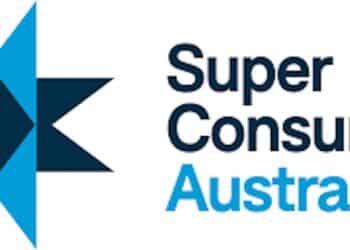William Fettes, director of DBA Lawyers, says one of the interesting things about the analysis of compensation amounts is that it can be very determinative, not just from the straight-up tax consequences, but also for contribution analysis.
“If there’s an amount received by a super fund, it might count under a member contribution cap as concessional or non-concessional, based on the circumstances,” Fettes said in a recent webinar.
Fettes said there have been some recent reviews by the Australian Financial Complaints Authority regarding compensation awards and the Compensation Scheme of Last Resort.
He said the relevant limit was generally dependent on who engaged the financial services provider and who had a legal right to the compensation.
“The key elements are who is engaged, who engaged the provider, and who has the legal right to the compensation?” he said.
“If we say this perhaps was bad advice, and then a right arising from that, we need to think about who the client was and who has the right of compensation.”
He continued that a compensation amount received by a super fund will typically be cap tested in certain cases, particularly where the individual member has the right of compensation.
“There’s that nexus more that the service has been obtained by the member, and the member has the right of compensation.”
“But of course, just because that’s how the right arose doesn’t mean the money might not end up in the fund, so we have to think also about the mechanism of how it gets there.”
He continued that if the amount was paid by the relevant provider, but paid at the member’s direction, meaning they had input and agency on the money going to their super fund rather than their bank account, it is essentially considered an after-tax, non-concessional contribution in the year of receipt.
“The only way that might become concessional is if the member then files their notice of intent, so they claim the deduction, such as it becomes a personal deductible contribution and therefore accessible and treated as part of their contract, their concessional contribution caps.”
“However, if it’s paid by the provider directly to the fund and not at the member’s direction, it’s essentially a payment on behalf of the member by someone else and that falls into the bucket as a concessional contribution in the receipt.”
He added that this scenario may push the issue into territory where the Commissioner’s discretion could be relevant.
“However, if paid to the member personally and then contributed, that is the standard one, and you won’t be surprised. That’s where it’s clearly a non-concessional contribution, unless it’s a personal deductible.”
Furthermore, Fettes said, if neither the individual member nor the trustee on the SMSF had the right of compensation, it is considered a contribution by someone else.
“A contribution made by a member or perhaps by a member’s spouse that’s allocated to them is typically going to be non-concessional unless the deduction is claimed as a contribution on behalf of a member by someone else.”
“Essentially, compensation amounts that end up in the super fund need to be considered carefully in terms of contribution risk.”



I don’t think compensation claims should be considered as a contribution at all.
The reason for a compensation claim is to reverse the effects of a loss incurred. That loss would have a negative tax effect as a reduction in capital gain possibly even causing a capital loss to be carried forward, so a compensation claim should offset that capital loss and not even be considered as a contribution.
If a compensation claim is considered as a contribution, it would cause additional complexities and would be unworkable in the event that the claimant is over age 75, because neither concessional, nor non-concessional contributions may be made above that age.
Additionally, if the loss causes a major reduction to the fund, the costs of retaining the fund may be excessive. If it has been decided that the fund is to be wound up, at least two problems arise.
Firstly, the compensation claim would not be able to be paid to the fund:
The Super fund needs to remain open to receive the compensation, because it cannot be closed and subsequently be reopened. This will cause further ongoing costs and losses due to ongoing
fees, particularly in the environment where AFCA is significantly overloaded by complaints and it may take months, maybe even years to get to all of the complaints being received.
Secondly, the tax credit from the capital loss may be lost, because there is nowhere else the compensation may be paid to offset that loss.
The only sensible solution for the compensation is for it to be a reversal of the loss, but this is not going to be ideal in many cases.